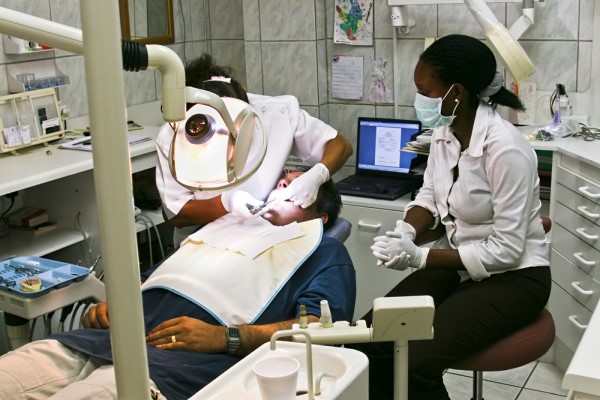 If you are adjusting to new dentures, you are far from alone. The ADA estimates that 120 million Americans are missing teeth, with 36 million missing all of them. Even those who have used dentures before may need replacements that they must get accustomed to. A major part of the adjustment is learning what to eat. While dentures enable people with missing teeth to better eat and speak, there are still some changes to be aware of.
If you are adjusting to new dentures, you are far from alone. The ADA estimates that 120 million Americans are missing teeth, with 36 million missing all of them. Even those who have used dentures before may need replacements that they must get accustomed to. A major part of the adjustment is learning what to eat. While dentures enable people with missing teeth to better eat and speak, there are still some changes to be aware of.
Suggested foods
At first, dentures will likely feel awkward in the mouth, as if they are too big, and the gums will be sensitive to their presence. The mouth also produces more saliva, which can make the dentures slip slightly. Irritation and sores are not uncommon. On top of this, one effectively needs to learn how to bite properly with dentures, which is very different from using natural teeth.
Because of this, it is recommended that you start with soft or liquid foods to minimize chewing. Scrambled eggs, mashed potatoes, oatmeal, and soups are good choices. Avoid sticky foods that can be difficult to remove from dentures, and watch out for spicy foods that can irritate an already sore mouth. Also, be careful with the food that is served hot or cold. Many new wearers find that judging the temperature of food is difficult, having relied on the teeth to feel heat or cold before biting down fully; try other ways to judge temperature, such as with your lips.
While adjusting to new dentures, they will gradually feel more comfortable in your mouth. Soon, you can start eating firmer foods again. As you continue to practice, you can gradually expand your food options. Some good choices at this stage include:
- Cooked vegetables, especially boiled or steamed
- Ground beef or turkey
- Pasta and cooked rice
- Poultry, eggs, or fish
- Soft bread
- Stewed or slow-cooked meats (e.g. beef brisket, pulled pork)
Cutting food into small pieces or strips helps, so think about this when choosing what to eat. Try to use both sides of the mouth to distribute pressure evenly, and if you have a hard time swallowing, take a drink to wash it down. Avoid foods that you will need to bite into with your front teeth; if you do eat them anyway, focus on using your canines instead of your incisors.
Even when you are adjusted, you will still face some dietary restrictions. Red meats, for instance, are often tough to chew, so you might choose poultry or fish over a steak. Sticky and crunchy foods are likely to still be an issue as well; even with more practice in chewing, they can get stuck in your dentures. Choose soft, ripe fruits and cooked vegetables over apples or raw carrots, and steer clear of crunchy snacks that may leave bits and pieces in your teeth, like crackers, popcorn, and whole nuts. Candy lovers can enjoy chocolate, preferably without toffee or nuts, and ice cream or frozen yogurt is a welcome treat.
Conclusion
Adjusting to new dentures means learning to eat with dentures in mind. Practice and the right choice of diet can make the process easier.
Request an appointment or call Carolina Smiles Family Dental at 828-974-3326 for an appointment in our Brevard office.
Recent Posts
Adjusting to new dentures can involve several changes to a person's routine. One thing that should stay the same, however, is regular dentist appointments. Here is what a new patient needs to know about the importance of dentist appointments and how often he or she needs to visit the dentist after receiving dentures.One commonly asked…
Getting new dentures can be a simultaneously exciting and daunting process. Although adjusting to new dentures takes some time and work, patients can immediately begin to enjoy the positive results of a full smile and a more rounded-out face. However, some aspects of adjustment may require a bit more practice. Chewing becomes somewhat different with…
Dentures can replace multiple missing teeth, restoring your confidence and ease of eating. Now that you have your smile back, the next step is adjusting to new dentures. How do you take care of your new smile.While dentures are not real teeth, you must care for them as attentively as real teeth. That way, they…


